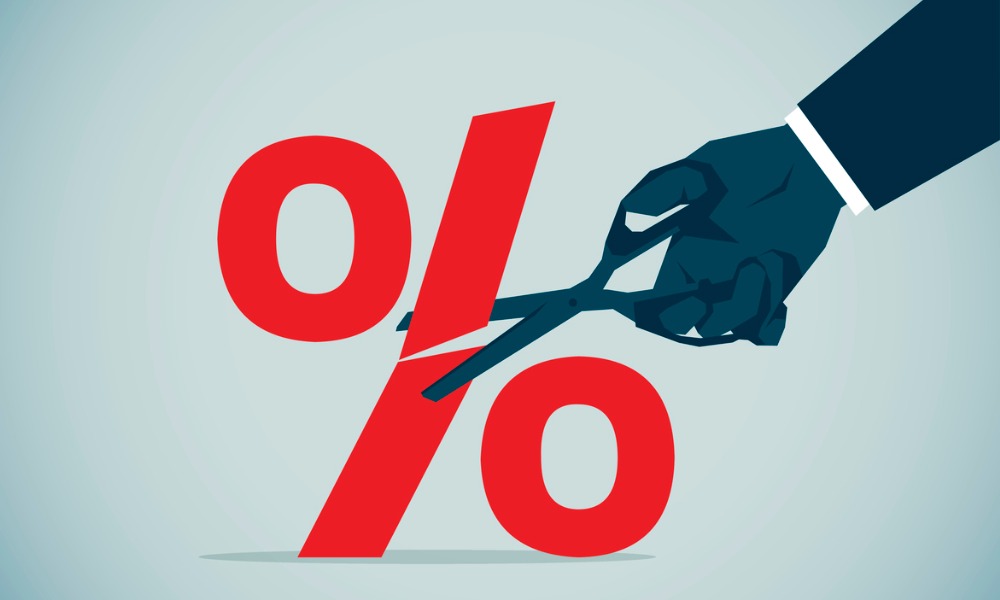Signs of future market lethargy are becoming increasingly apparent

Sticky inflation could prove to be a motivating force for the Bank of Canada to cut interest rates, according to Canadian Imperial Bank of Commerce (CIBC).
This is despite factors like high oil prices looking increasingly unlikely to persist.
“Oil prices have already reversed course, as fears of a wider Middle East conflict haven’t offset slowing global demand growth,” CIBC said.
However, while wage hikes remain elevated, “the unemployment rate is on a clear uptrend, and job vacancies are also moving decisively towards looser conditions.”
This is shaping up to be a recipe for future market lethargy.
“We know of no persuasive argument that would suggest that labour market slack will fail to show up in less robust pay hikes in the coming year,” CIBC said.
CIBC cited the central bank governor’s recent statements of a rate-easing cycle being likely to take place before inflation reaches the BoC’s 2% target, should there be clear evidence of progress in “core” inflation metrics.
“The Bank of Canada’s core measures are likely to make better progress in the months ahead, particularly if food price hikes abate,” the bank said.
“If, as we expect, Q1 core inflation falls, but the overall CPI ends up near 3% due to the outsized contribution from mortgage interest costs, we’ll be set up for rate cuts before mid-year,” CIBC added. “Sticky inflation in this case will be a reason to ease up on rate.”
According to BMO chief economist Doug Porter, the recent pause in interest rate hikes by the Bank of Canada is unlikely to spur another housing market upswing before the end of the year. https://t.co/6F2hddiHWD#MortgageIndustry #HousingMarket #RateHike #InterestRates
— Canadian Mortgage Professional Magazine (@CMPmagazine) November 3, 2023
No specific timeframe for rate cuts, says BoC’s Macklem
The median projection of a recent survey by the Bank of Canada is anticipating interest rates to fall to 4% by the fourth quarter of 2024, with cuts likely to begin by April that year.
However, BoC Governor Tiff Macklem said that while the hikes have had a less-than-optimal impact on Canadian households’ finances, he can’t promise exactly when rate cuts will take place.
“I understand exactly how people are feeling, but I also don’t want to give them false precision,” Macklem said in a recent interview with CBC. “When we start to see clear evidence that we’re on a path back to 2% [inflation] … that’s when we can start to have the discussion about lowering interest rates.
“The economy’s not overheated anymore… we do think there’s more inflation relief in the pipeline. And if that comes through, we won’t have to raise rates further.”



